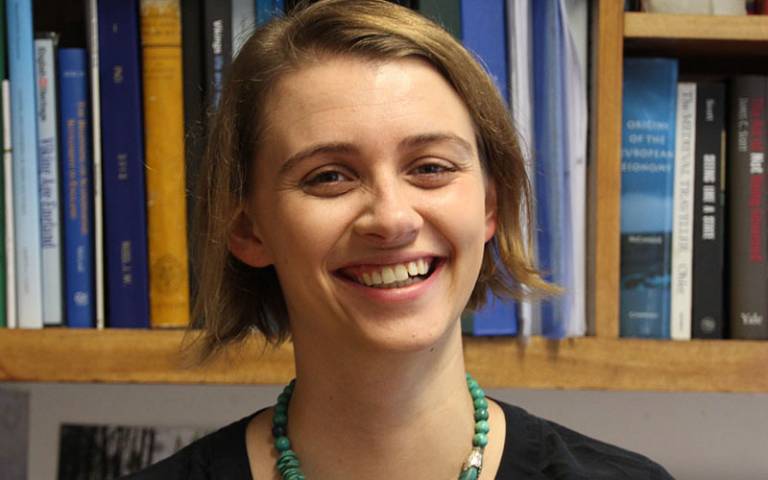Antiquity Prize 2024 awarded to research on the Islamic green revolution
12 June 2024
A collaborative article co-authored by Corisande Fenwick (UCL Institute of Archaeology) has been awarded the Antiquity prize for 2024.

The journal article entitled 'Re-thinking the ‘Green Revolution’ in the Mediterranean world' was originally published in the August 2023 issue of Antiquity by a collaborative authorship team to whom congratulations are given.
The article examines the archaeological evidence for the so-called ‘Islamic Green Revolution’ and the spread of new crops and agricultural practices in the medieval Mediterranean. To fully examine the long-term causes and effects of Islamic expansion, the authors argue for the expansion of the region and period typically considered, to encompass the entire Mediterranean from the 6th to 16th centuries AD.
By applying a new approach to the archaeological evidence, the researchers set a new agenda for the examination of the long-term ecological impact of the Arab conquests on the Mediterranean, western European, and, ultimately, post-Columbian American societies.
Abstract

From the seventh century AD, successive Islamic polities were established around the Mediterranean. Historians have linked these caliphates with the so-called ‘Islamic Green Revolution’—the introduction of new crops and agricultural practices that transformed the economies of regions under Muslim rule. Increasingly, archaeological studies have problematised this largely text-based model of agrarian innovation, yet much of this research remains regionally and methodologically siloed. Focusing on the Western Mediterranean, the authors offer a theoretically informed, integrated environmental archaeology approach through which to contextualise the ecological impact of the Arab-Berber conquests. Its future application will allow a fuller evaluation of the scale, range and significance of agricultural innovations during the ‘medieval millennium’.
According to Corisande Fenwick (co-author of the article):
“We propose a new, multi-stranded archaeological approach to tackle one of the most fractious debates in Islamic history – the impact of the Arab conquests on European agriculture."
The annual Antiquity prize was founded in 1994 to recognise the best article published each year in Antiquity.
The prize-winning article is available to read for free here.
The MEDGREENREV project - Re-thinking the Green Revolution in the Medieval Western Mediterranean (6th - 16th centuries) - is funded by an ERC Synergy Grant (ERC-2022-SYG) and involves a collaborative research team co-ordinated by Helena Kirchner (UAB) with Guillermo García-Contreras (University of Granada), Aleks Pluskowski (University of Reading), Michelle Alexander (University of York) and Corisande Fenwick (UCL).
 Close
Close

